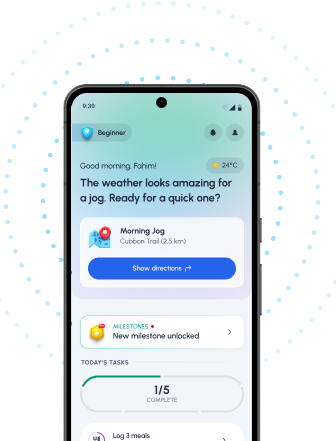Table of Contents
- Home Enteral Nutrition: Benefits for Diabetes
- Managing Diabetes Through Enteral Nutrition
- Home Enteral Nutrition: A Guide to Safe Use
- Diabetes and Home Enteral Nutrition: Recipes and Meal Plans
- Is Home Enteral Nutrition Right for Your Diabetes Management?
- Frequently Asked Questions
- References
Managing diabetes effectively often involves more than just diet and exercise. For some, home enteral nutrition plays a crucial role in achieving optimal blood sugar control and overall well-being. This comprehensive guide dives deep into the world of home enteral nutrition, exploring its benefits, practical applications, and considerations for individuals with diabetes. We’ll unpack the intricacies of this specialized approach, helping you understand whether it’s the right path for you or a loved one. Let’s explore how home enteral nutrition can revolutionize your diabetes management journey.
Home Enteral Nutrition: Benefits for Diabetes
Managing diabetes, particularly in hot and humid climates prevalent across India and tropical countries, presents unique challenges. Maintaining consistent blood sugar levels becomes even more critical, especially considering the impact of heat and potential dehydration. Home enteral nutrition (HEN) offers a powerful tool in this context. It provides a precise and controlled way to deliver nutrition, allowing for careful management of carbohydrate intake, a crucial aspect of diabetes control. The recommended carbohydrate intake varies, but generally, 45–60 grams per meal is suggested for most people with diabetes, depending on their individual needs. This level of precision is difficult to achieve consistently with traditional meal planning.
Improved Glycemic Control with HEN
HEN allows for customized nutrient profiles, including precise carbohydrate control, tailored to an individual’s specific needs and metabolic response. This leads to better glycemic control, reducing the risk of blood sugar fluctuations that can lead to long-term complications like kidney disease, nerve damage, and cardiovascular issues. The consistent delivery of nutrients through HEN minimizes the unpredictable spikes and crashes associated with inconsistent food intake. This is especially beneficial in managing type 1 and type 2 diabetes in diverse Indian and tropical populations. Furthermore, supporting gut health is crucial for managing diabetes, and you can learn more about the role of prebiotics and probiotics in gut health and diabetes management.
Convenience and Compliance in Challenging Climates
In hot and humid regions, food spoilage can be a significant concern. HEN offers a reliable alternative, eliminating the need for constant food preparation and refrigeration, which is particularly relevant in regions with limited access to reliable electricity. This aspect is critical for ensuring consistent nutrient intake and enhanced diabetes management, improving overall compliance with treatment plans. For individuals with mobility challenges or those experiencing digestive issues common in these regions, HEN offers a safe and convenient method of receiving essential nutrients.
Access to Specialized Nutritional Support
Consult with a registered dietitian or certified diabetes educator to create a personalized HEN plan that aligns with your specific dietary needs and health goals. They can help you navigate the complexities of carbohydrate counting and ensure you receive the optimal nutritional support for effective diabetes management. Seeking professional guidance is crucial for maximizing the benefits of HEN and maintaining your overall well-being. Remember to also consider the safe and effective use of dietary supplements, as outlined in our blog on safe and effective dietary supplements for diabetes care.
Managing Diabetes Through Enteral Nutrition
Managing diabetes, especially in the context of India and other tropical countries, often requires a multifaceted approach. A significant portion of the diabetic population in these regions falls within the 20-64 age group (61%), a demographic often juggling demanding lifestyles and limited access to specialized care. Enteral nutrition, the delivery of nutrients directly into the gastrointestinal tract, presents a viable solution for effective diabetes management in these contexts.
Benefits of Enteral Nutrition for Diabetes Management
Enteral nutrition offers precise control over carbohydrate, protein, and fat intake, crucial for regulating blood glucose levels. This is particularly beneficial for individuals with diabetes who struggle to maintain consistent dietary habits or experience difficulties with oral intake due to complications of the disease. Furthermore, customized enteral nutrition formulas can address specific nutritional deficiencies often associated with diabetes in tropical climates, where access to diverse, nutrient-rich foods may be limited. For the older demographic (39% aged 65+), enteral nutrition can improve overall health and reduce the burden of managing complex dietary needs. This is especially relevant when considering the challenges discussed in Managing Diabetes as You Age: Challenges and Solutions.
Practical Considerations and Regional Adaptations
Implementing enteral nutrition requires careful planning and monitoring. In India and tropical countries, considerations include factors like cost, accessibility of specialized formulas, and the availability of trained healthcare professionals to provide guidance and support. Choosing appropriate formulas tailored to local dietary preferences and cultural nuances is essential for long-term adherence. Collaborating with healthcare providers familiar with local conditions and diabetes management practices in these regions is crucial for successful implementation. It’s also important to address the emotional aspects of managing diabetes, as discussed in Addressing Emotional Eating in Diabetes: Strategies.
Taking the Next Step
Consult with your doctor or a registered dietitian to determine if enteral nutrition is a suitable option for your diabetes management. They can assess your individual needs and help you navigate the process, ensuring you receive the optimal nutritional support necessary for a healthy and fulfilling life. Remember, proactive management is key to mitigating the long-term health consequences associated with diabetes, particularly in the unique contexts of India and other tropical regions.
Home Enteral Nutrition: A Guide to Safe Use
Understanding Blood Sugar Levels and Enteral Nutrition
Maintaining healthy blood sugar levels is crucial, especially for individuals with diabetes in India and other tropical countries. Remember, less than 140 mg/dL is considered normal, while 140–199 mg/dL indicates prediabetes, and 200 mg/dL or higher suggests diabetes. Home enteral nutrition (HEN) can be a valuable tool in managing diabetes, but safe and effective use requires careful planning and monitoring. Improper use can lead to complications, so seeking guidance from a healthcare professional is essential.
Safe Practices for Home Enteral Nutrition
Proper formula selection is paramount. Different formulas cater to varying nutritional needs and diabetic requirements. Consult a registered dietitian or diabetologist to choose a formula appropriate for your specific needs and blood sugar levels. Regular blood glucose monitoring is vital to track your response to the HEN regimen. This allows for timely adjustments to the formula or medication as needed. Maintaining cleanliness and hygiene during preparation and administration of the formula is non-negotiable to prevent infections, a significant concern in warmer climates. This includes proper handwashing and sterilization of equipment. Understanding What Are the Most Common Nutrition Myths Debunked? can also help you make informed decisions about your diet alongside your HEN plan.
Seeking Expert Advice in India and Tropical Countries
In regions like India, access to qualified healthcare professionals specializing in diabetes management and enteral nutrition is crucial. Regular consultations with your doctor and dietitian are essential for adjustments to your HEN plan based on your progress and blood sugar levels. Do not hesitate to seek help; your health is paramount. Consider joining support groups or online communities to connect with others managing diabetes through HEN, sharing experiences and learning valuable tips relevant to the Indian and tropical contexts. Remember, consistent monitoring and professional guidance are key to safe and effective home enteral nutrition for diabetes management. The Importance of Nutritional Education and Counseling in Self-Management cannot be overstated, especially when dealing with a condition like diabetes.
Diabetes and Home Enteral Nutrition: Recipes and Meal Plans
Managing Diabetes Through Enteral Nutrition at Home
Effectively managing diabetes often requires precise control over carbohydrate intake and consistent blood sugar monitoring. Home enteral nutrition (HEN) offers a structured approach, particularly beneficial for individuals with diabetes who struggle with meal planning or managing their condition. HEN provides tailored nutritional support, helping regulate blood glucose levels and potentially mitigating the increased risk of sleep apnea, a common comorbidity in diabetes (studies show a 70% increased risk). This structured approach can lead to improved overall health outcomes.
Developing Personalized Diabetes-Friendly Meal Plans
Crafting effective HEN recipes requires careful consideration of macronutrient ratios and glycemic index. In Indian and tropical contexts, this means incorporating locally sourced, fresh produce rich in fiber and nutrients. For example, incorporating amaranth, a staple in many Indian diets, can offer a low-glycemic alternative to refined carbohydrates. Similarly, incorporating seasonal fruits like mangoes (in moderation) and incorporating spices known for their anti-diabetic properties adds flavour and nutritional value. Consulting with a registered dietitian specializing in diabetes management is crucial for developing a personalized plan that considers individual needs and preferences. For more ideas on creating delicious and healthy meals, check out our blog on Creating Diabetes-Friendly Dishes for the Holidays.
Access to Support and Resources
Successfully implementing HEN requires ongoing support and guidance. Many hospitals and clinics in India and other tropical countries now offer diabetes education programs and specialized dietetic services focused on HEN for diabetes management. These programs offer invaluable support in navigating the dietary requirements and practical aspects of home enteral nutrition. Actively seeking out such resources will significantly improve your ability to manage your diabetes effectively through HEN. To help you get started, you might find our Diet Chart for Diabetic Patients to Control Diabetes a useful resource.
Is Home Enteral Nutrition Right for Your Diabetes Management?
Managing diabetes, especially in hot and humid climates prevalent across India and other tropical countries, presents unique challenges. Maintaining optimal blood glucose levels is crucial, and for some, home enteral nutrition (HEN) might be a viable solution. Ideal blood sugar control involves keeping pre-meal levels between 80–130 mg/dL and post-meal levels below 180 mg/dL. Consistent, controlled nutrition is key, and HEN can offer this consistency.
Understanding Home Enteral Nutrition for Diabetes
HEN involves providing nutrition directly into the stomach or small intestine through a tube, bypassing the oral route. This is particularly beneficial for individuals with diabetes who struggle to maintain a consistent and balanced diet, experience difficulty swallowing, or have gastroparesis (delayed stomach emptying). In tropical climates, where food spoilage is a concern, HEN can offer a reliable method to ensure consistent nutrient intake. This is especially important for diabetics who may experience increased thirst and frequent urination, leading to dehydration and further complications.
HEN and its Benefits in Tropical Climates
The consistent delivery of nutrients through HEN helps regulate blood sugar levels, minimizing the fluctuations associated with inconsistent food intake. This is especially important for managing Type 2 diabetes, where dietary control is paramount. Furthermore, the tailored nutritional composition of HEN formulas ensures that individuals receive the precise balance of carbohydrates, proteins, and fats necessary to support optimal health and manage their diabetes. Consider consulting a registered dietitian or diabetologist to determine if HEN is appropriate for your individual needs and situation. They can help assess your specific dietary requirements and guide you on the best approach for managing your diabetes effectively in your region. For more tips on effective diabetes management, check out our article on 10 Proven Tips for Effective Diabetes Management. Managing diabetes often involves considering other health factors as well; for instance, learn more about how to manage cholesterol alongside diabetes in our guide, How to Manage Cholesterol Levels with Diabetes?.
Frequently Asked Questions on Home Enteral Nutrition
Q1. What is Home Enteral Nutrition (HEN) and how does it help manage diabetes?
Home enteral nutrition (HEN) is a method of providing nutrition through a tube directly into your stomach. For diabetes management, it offers precise control over nutrient delivery, especially carbohydrate intake, leading to consistent blood sugar levels and reduced risks of complications like kidney disease and nerve damage.
Q2. What are the key benefits of using HEN for diabetes management, particularly in hot climates?
HEN offers several benefits, especially in hot, humid regions: controlled carbohydrate intake prevents blood sugar spikes, customized nutrient profiles address individual needs, it reduces the risk of food spoilage common in these climates, and it improves convenience and compliance, particularly for those with mobility or digestive issues.
Q3. Are there any potential challenges or limitations associated with HEN?
Yes, individualized plans are crucial for success, requiring collaboration with a registered dietitian or certified diabetes educator. Regular monitoring and professional guidance are necessary for safe and effective use. It’s not a standalone solution and requires commitment to the prescribed plan.
Q4. How do I get started with HEN for diabetes management?
Begin by consulting with your doctor and a registered dietitian or certified diabetes educator. They will assess your needs, create a personalized nutrition plan, and guide you through the process of implementing and monitoring HEN. They can also address any concerns and provide support.
Q5. What are some common misconceptions about HEN for diabetes?
A common misconception is that HEN is a quick fix. It requires commitment, professional guidance, and regular monitoring for optimal results. Another is that it’s a replacement for all other diabetes management strategies; it’s best used in conjunction with other recommended treatments and lifestyle changes.
References
- A Practical Guide to Integrated Type 2 Diabetes Care: https://www.hse.ie/eng/services/list/2/primarycare/east-coast-diabetes-service/management-of-type-2-diabetes/diabetes-and-pregnancy/icgp-guide-to-integrated-type-2.pdf
- Children with Diabetes : A resourse guide for families and school. : https://www.health.ny.gov/publications/0944.pdf




